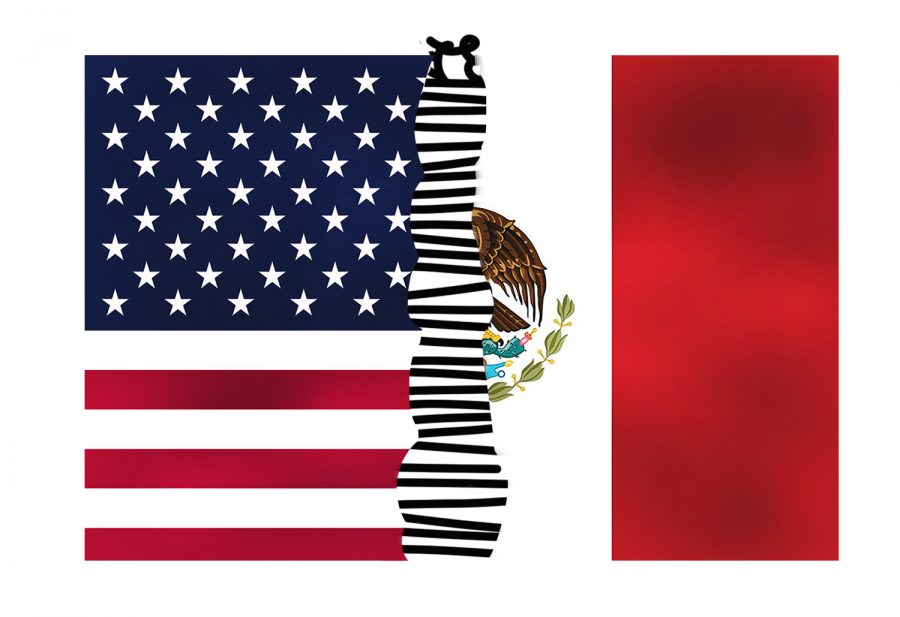Lack of immigration reform defines us as a nation
Political divisiveness drives conversation about the border, but distracts from the negligence at the border and the need for the empathetic leaders.
March 9, 2020
Darlyn Cristabel Cordova-Valle, Jakelin Caal Maquín, Felipe Gomez, Juan de León Gutiérrez, Wilmer Josué Ramírez Vásquez, and Carlos Hernández Vásquez are the names of the six children who passed away because of United States negligence at the Mexico-United States border.
While three of the children died from pre-existing conditions, the other three passed due to treatable illnesses such as the flu. One of these children, Carlos Hernández Vásquez, is the most recently publicized victim of United States irresponsibility, and must be addressed when selecting our new leaders in the 2020 election.
ProPublica broke the story of Vásquez’s death on December 5th. The New York Times reported that Vásquez was diagnosed with a 103-degree fever and flu by a nurse practitioner. The practitioner had determined if Vásquez’s condition had worsened he would need to be sent to the hospital. Instead, the sixteen-year-old boy was left in his holding cell for over six hours. A video obtained by ProPublica of Vásquez’s final moments includes a four-hour gap. In that four hour gap, Vásquez had passed away. The United States Customs and Border Patrol (CBP) has refused to release the full video. According to ProPublica, CBP agents did not realize the teenager died until they were alerted by Vásquez’s cellmate, who was also sick, who had found his body.
Vásquez is the first child to die in border patrol custody without being taken to a hospital in a decade, NBC reports. The death of Vásquez highlights a bigger problem that infects the American public and our federal government: the silence with which we respond to the suffering of these children and hundreds of thousands of other migrants.
The response from the U.S government and governmental agencies based on immigration and border patrol has been appalling, to say the least. The genuine disregard and indifference that the death of these children has been met with are beyond dehumanizing. The silence of the United States government speaks for itself. This is not a nation of freedom, it is not a nation of prosperity, it is not a nation of peace. This is a nation of imprisonment, a nation of systematic oppression, a nation where we condone the violence of people simply because they are not citizens.
The United States government has the responsibility to care for these migrants even if they are not citizens, and to treat these migrants as humans, not animals.
“When Mexico sends its people, they’re not sending their best.” President Donald Trump said, “They’re sending people that have lots of problems, and they’re bringing those problems with us. They’re bringing drugs. They’re bringing crime. They’re rapists.”
Despite what the Trump administration has said about immigrants, they are not drug lords and runners, with the sole goal of corrupting America. In my firm opinion, this is the real fake news. As the daughter of two immigrants, I can attest that the majority of these migrants are families, and people who want a better life and future for themselves.
Why would you leave your home country if there was nothing wrong with it? Why would you willingly strip yourself of your nationality, your language, and your identity unless you had no other choice? Migrants are human. They have human motivations. They suffer, endure, and persevere to fight for the right to build a future when their’s has been taken from them.
In the face of the hateful and discriminatory rhetoric that the Trump administration spews, we must remember that these people are human. We, the citizens, have the power and the social responsibility to fight for the migrants that don’t have the resources to fight for themselves.
During the 2020 election, we must demand empathetic policymakers and policies. If we fail to correct the human rights violations that plague the border crisis we will fundamentally redefine ourselves as a nation. Right now, we no longer uphold the values of freedom, justice, and individuality. Instead, we are becoming the very monsters we chastise and claim we battle against. We can’t let ourselves be oppressors, tyrants, and bystanders. Collectively, we must take a stand against the clear human rights violations and negligence that haunts the border.






